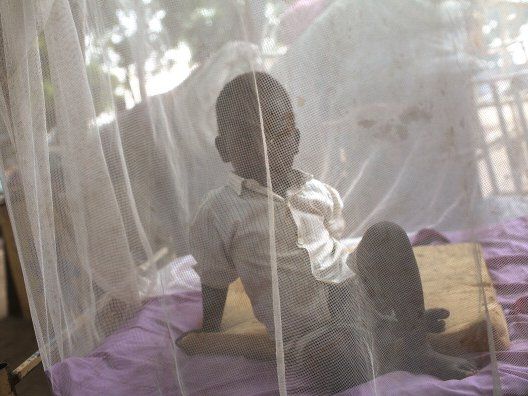Malaria is fortifying itself against human immunodeficiency
The malaria parasite is gaining strength from a "very precise genome" capable of immunizing itself, resisting attacks and avoiding defenses of the human immune system, a recent British study found.
The study was carried out by researchers at the Wilhelm Trust Sanger Institute in Britain and published in the latest issue of the journal Cell.
To reach the results of the study, the research team monitored and analyzed more than half of the genes in the "perceived" genome of the malaria parasite.
The researchers found that two-thirds of these genes are essential for growth, because they retain only the genes needed for growth, noting that this is the largest proportion of the underlying genes found in any living organism to date.
Scientists have found that the parasite often removes genes that produce proteins that weaken its immune system. This allows malaria to change its shape to the immune system and thus resist serotonin, a problem in the production of vaccines and drugs that are effective for the disease.
"The malaria parasite is very precise and retains the basic genes needed for its growth," said Julian Reiner, the research team leader.
"This is a negative finding that the parasite is easily able to get rid of genes that we are trying to produce vaccines to eliminate, but on the positive side there are many more than we thought of the basic genes we are seeking to develop new drugs to deal with," he said.
Malaria remains one of the most difficult health challenges in the world, with more than 200 million people infected each year and nearly half a million, mostly children in Africa.
To date, there is no malaria vaccine licensed anywhere in the world and malaria is transmitted by a monoclonal parasite.
A female mosquitoes take the parasite from infected people when they bite to get the blood needed to feed their eggs. The parasite then begins to multiply within the mosquito, and when it bites another person, the parasites mingle with their larvae and move into the person's blood.
According to the World Health Organization, about 3.2 billion people, or nearly half of the world's population, are at risk of contracting malaria, and the disease kills a child in Africa every minute.
Malaria has killed 627,000 people in 2012, mostly children in the southern African desert and under five years of age. The epidemic is causing 1,300 children a day in sub-Saharan Africa.

Good Article @musousgir10
upped and resteened :)
thank you Dr. ARAKI